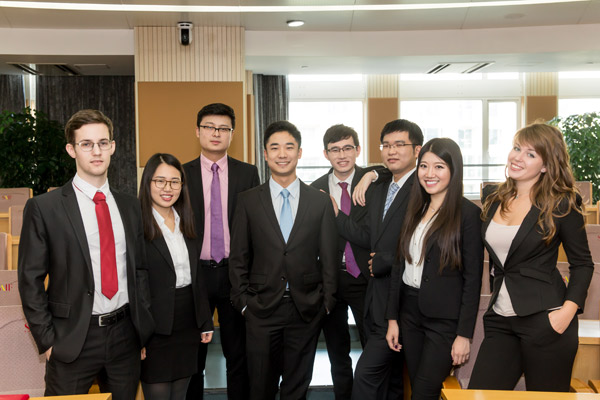Poised to make a difference

[Photo provided to China Daily]
Chang points out that the planned expansion of the Shanghai Free Trade Zone, where financial models that are even more advanced and open than those in Hong Kong and the United States can be adopted, will present a historic opportunity for Shanghai to rise as an international financial center.
"Shanghai should seize this opportunity, because it might move to India within a decade," he says.
Tu Guangshao, former vice-president of China Investment Corporation who was involved in setting up SAIF, says that the institute was founded at a time when there were global financial fluctuations.
"The SAIF was established with a mission to accelerate the financial development of China, which was then still an emerging, developing economy that faced many hurdles," says Tu, who was also a former vice-mayor of Shanghai.
According to the 2018 Financial Times Master in Finance Rankings, SAIF was placed 10th in the world. It was also ranked the best in Asia for the second time.
In the QS Finance Masters Rankings which was released in March by British education company Quacquarelli Symonds, SAIF's Master of Finance program was ranked top on the Chinese mainland.
Michael Brennan, a professor at the Anderson School of Management of University of California, Los Angeles, says that he was most impressed by the quality of the faculty at SAIF.
"That's what really determines the contribution and success of a business school," he says.
"This is a time of great change in the financial system in China and the level of sophistication of the financial markets in China is increasing all the time."
Li Shuxin, a Chinese Canadian who started her studies at SAIF last year, says that while all the students come from diverse backgrounds they are united by their common goals.
"That's the magic of SAIF. It really brings us all together," she says.
Contact the writer at zhouwenting@chinadaily.com.cn


 China's public holidays for 2025
China's public holidays for 2025  Shanghai FTZ: Go all out to build China's first pilot zone for Silk Road E-commerce cooperation
Shanghai FTZ: Go all out to build China's first pilot zone for Silk Road E-commerce cooperation  Favorable policies boost 'China Travel' trend
Favorable policies boost 'China Travel' trend  play
play 